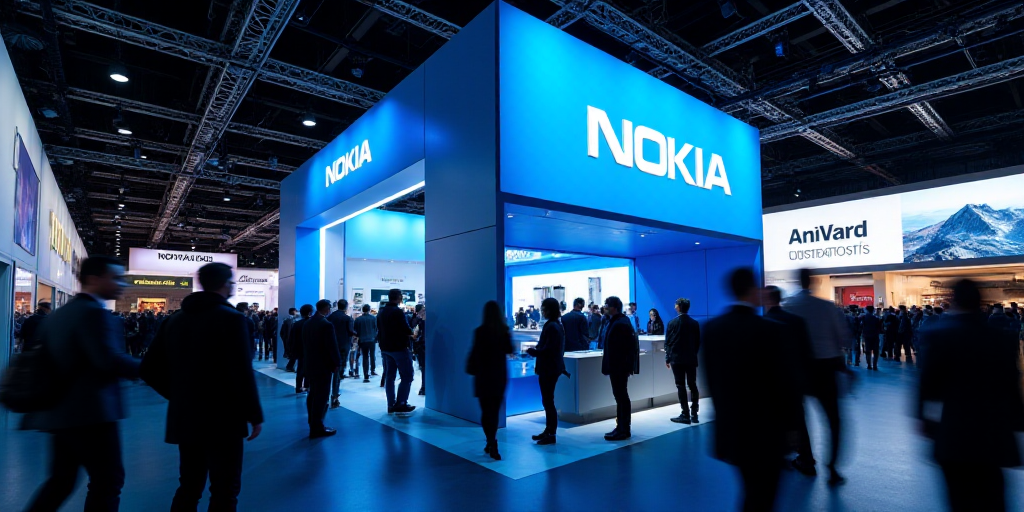Nokia’s Digitalization Industrial 2025 Report Highlights Benefits of Private Wireless Networks
Nokia, in collaboration with GlobalData, released the Digitalization Industrial 2025 report, emphasizing that 87% of companies adopting private wireless networks are seeing a return on investment within just one year, while enabling AI-based use cases.
Key Findings
- ROI: 87% of companies are experiencing a return on investment within one year.
- Cost Reduction: 81% of industrial companies have observed a reduction in installation costs, with half reporting savings of at least 11%.
- Operational Costs: 86% of companies have experienced reduced operational costs, with 60% reporting savings of at least 11%.
- Market Growth: GlobalData predicts the private wireless network market will double, reaching $8 billion by 2027, driven by the growing demand for industrial modernization in line with global sustainability and efficiency goals.
Private Wireless Networks Drive Sustainability Advancements
The report also highlights how operational improvements driven by private wireless networks contribute to sustainability objectives. 94% of industrial companies surveyed reported a reduction in carbon emissions, with 41% achieving decreases greater than 20%, and 89% reporting energy savings.
These advancements are further amplified by predictive maintenance, connected devices, and drones, which reduce fuel-consuming travels and enable more precise real-time tracking of emissions.
Security, Efficiency, and Automation with Technologies for Connected Workers
Beyond the environmental impact, 71% of companies surveyed are actively implementing tools for connected workers, such as automated alarms, AI-assisted monitoring, and geofencing solutions, to reduce accidents and strengthen worker safety.
Connected devices streamline tasks by reducing the need to move for signal and simplifying information access. They also minimize paperwork and human error, increasing on-site efficiency and automation.
Cybersecurity Propels Adoption of Private Wireless Networks and Edge
Security remains a top priority, with 57% of respondents identifying cybersecurity as a driver for implementing an industrial edge platform powered by private wireless networks.
Private wireless network solutions offer integrated encryption, physical network separation, and compatibility with zero-trust security policies, making them ideal for mission-critical infrastructures while maintaining business continuity and compliance.
“Industrial companies are turning to private wireless networks and the edge to drive innovation and industrial transformation. These implementations offer a clear return on investment and enable use cases that would otherwise be unattainable. Private wireless networks and the edge have helped companies improve worker safety, promote sustainability, and create a platform for AI-based solutions like process automation and predictive maintenance,” said Gary Barton, Research Director at GlobalData.
Key Questions and Answers
- Q: What is the main finding of Nokia’s Digitalization Industrial 2025 report?
- Q: How do private wireless networks contribute to sustainability goals?
- Q: What role do private wireless networks and edge technologies play in industrial settings?
- Q: Why is cybersecurity a significant factor in adopting private wireless networks?
A: The primary finding is that 87% of companies adopting private wireless networks are seeing a return on investment within one year, while enabling AI-based use cases.
A: Private wireless networks drive sustainability advancements by reducing carbon emissions and enabling energy savings, further amplified by predictive maintenance, connected devices, and drones.
A: Private wireless networks and edge technologies improve worker safety, promote sustainability, and create a platform for AI-based solutions like process automation and predictive maintenance.
A: Cybersecurity is crucial as private wireless network solutions offer integrated encryption, physical network separation, and compatibility with zero-trust security policies, ensuring mission-critical infrastructure protection and business continuity.






